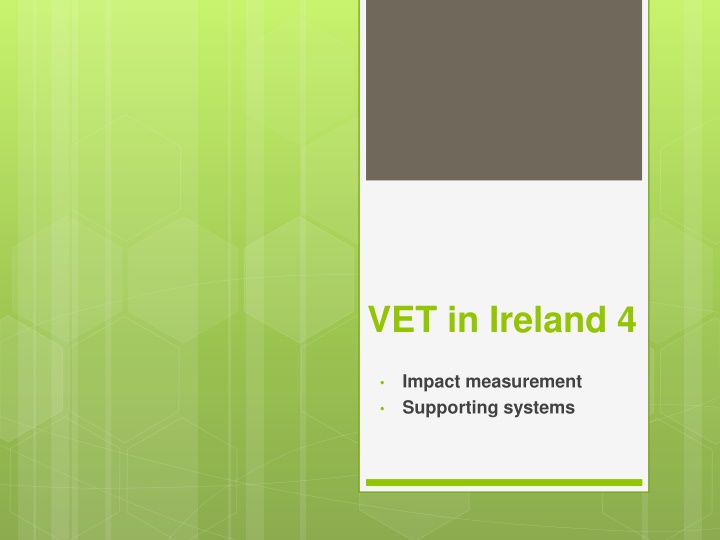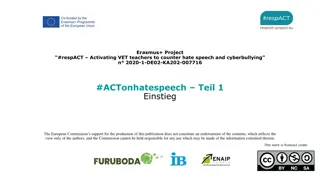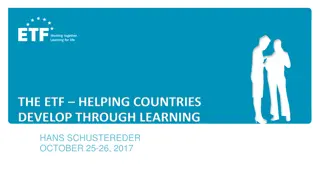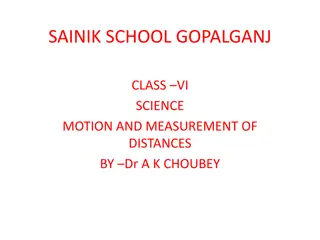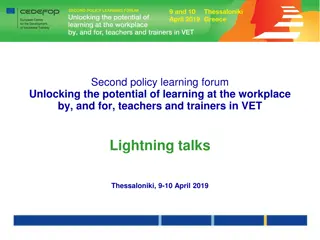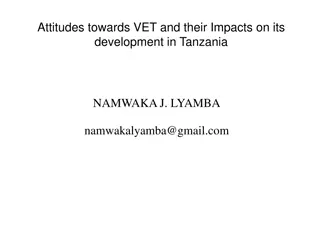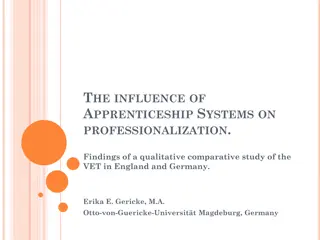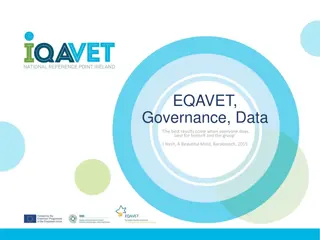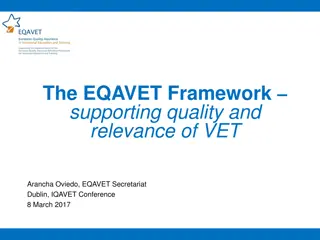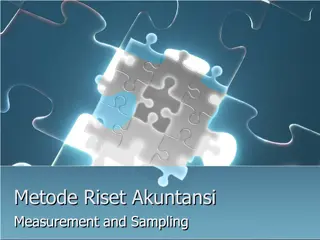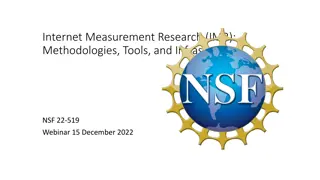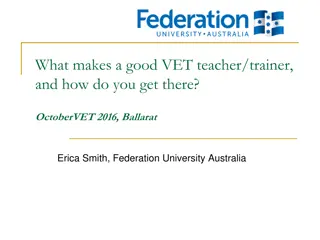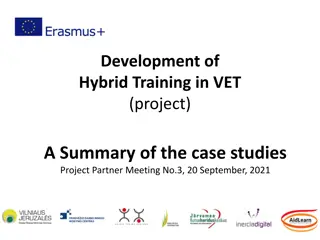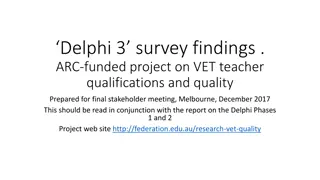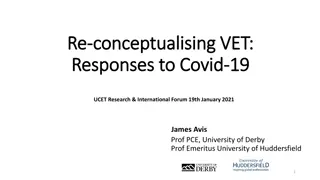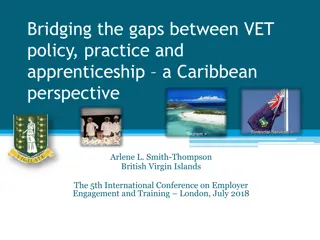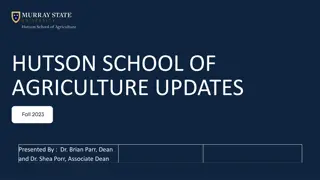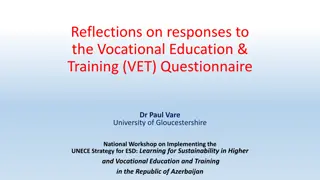Impact Measurement Challenges in VET Programs
Data weaknesses in impact measurement for Vocational Education and Training (VET) programs in Ireland hinder the ability to draw meaningful conclusions. Current pressures for VET to contribute to reducing unemployment emphasize the need for robust monitoring and reporting systems.
Download Presentation

Please find below an Image/Link to download the presentation.
The content on the website is provided AS IS for your information and personal use only. It may not be sold, licensed, or shared on other websites without obtaining consent from the author.If you encounter any issues during the download, it is possible that the publisher has removed the file from their server.
You are allowed to download the files provided on this website for personal or commercial use, subject to the condition that they are used lawfully. All files are the property of their respective owners.
The content on the website is provided AS IS for your information and personal use only. It may not be sold, licensed, or shared on other websites without obtaining consent from the author.
E N D
Presentation Transcript
VET in Ireland 4 Impact measurement Supporting systems
Impact measurement research and data bases for VET - Data Weak sources on impact fragmented Many of the numerous non-tertiary VET programmes gather progression data but not aggregated - for system, region, an individual provider or pathway difficult to draw meaningful conclusions - response rates may be low; different terminology, reference periods & collection protocols; outputs not harmonised; not timely; Neither F S or VEC overall VET services have been evaluated independently - some individual programmes
But . . . Current pressure on and expectations of, VET as a key economic recovery strategy mean that funding authorities are focusing on learning outcomes and impact measurement Trend is accelerated by pressure on VET programmes to contribute to a measurable reduction in unemployment - in circumstances where good employment outcomes are elusive Numerous recent research and other reports have called for a more formal and robust approach to on-going monitoring of VET progression outcomes based on consistent and sustained recording / reporting to ensure that investment can be ascertained full value of public
Some findings . . . . The evaluation of 2010 Labour Market Activation Fund (LMAF) subjected LMAF to a strong analysis in terms of its impact and in terms of the funding model used found a foundation for contributing to a new model of labour market activation recommended that consideration piloting an outcomes-based funding model within any future fund where project providers are rewarded on the basis of meeting specified outcome targets a performance management payment-by-results challenges and pitfalls, disadvantages be given to - potential approach but benefits may outweigh
Some findings - HE 2010 - Higher Education Authority graduate survey of graduate destinations 9 months after graduation the Class of 2008 (surveyed 04/ 2009) entered one of the toughest economic scenarios since publication began 28 years earlier Level 8 Honours Bachelor graduates - 50% in employment; 10% seeking employment; 34% in further studies/training Strongest performers - graduates in Medicine, Dentistry, Para- Medical and Veterinary Somewhat less than 50% of graduates in Commerce, Business Studies, Science, Food Science, Technology and Engineering in employment For most award levels the Non-Market Services most popular sector The least populated sectors by graduates at any level were: Agriculture, Forestry and Fisheries; Electricity, Gas & Water Supply; Transport, Storage & Construction; Distribution. Communications; Building &
Support systems The Expert Group on Future Skills Needs and the National Skills Strategy provide vital information and direction on future skills needs The National Centre for Guidance in Education (NCGE) supports guidance in schools & the local Adult Education Guidance Initiative ( 2000) Employment and Entitlements individuals to return to learning in the VET system will support National Service Number of national databases provide course / career information for potential learners. Qualifax is a one stop shop" providing information on education & training Learners can access a number of websites created for career guidance purposes (e.g. Career Directions, Qualifax), but each covers only some elements of the range of VET
Support systems The Further Education Support Service (FESS) established in 1997 to support further education and training centres offering FETAC Modules and Awards - a full-time, year-round consultancy service operating through 5 Vocational Education Committees (VECs) FESS currently exclusively supports the Department of Education and Skills-funded centres registered with FETAC - provides CPD to VEC staff in relation to FETAC assessment In recent years there has been an increased demand for tailored and personalised learning provision. Modularised curricula and the F S eCollege, for example, are examples of responses to that trend. In recognition of the demand for learning opportunities from the growing numbers of unemployed persons the eCollege has expanded provision and offers courses at no cost to the individual. Awards development and
